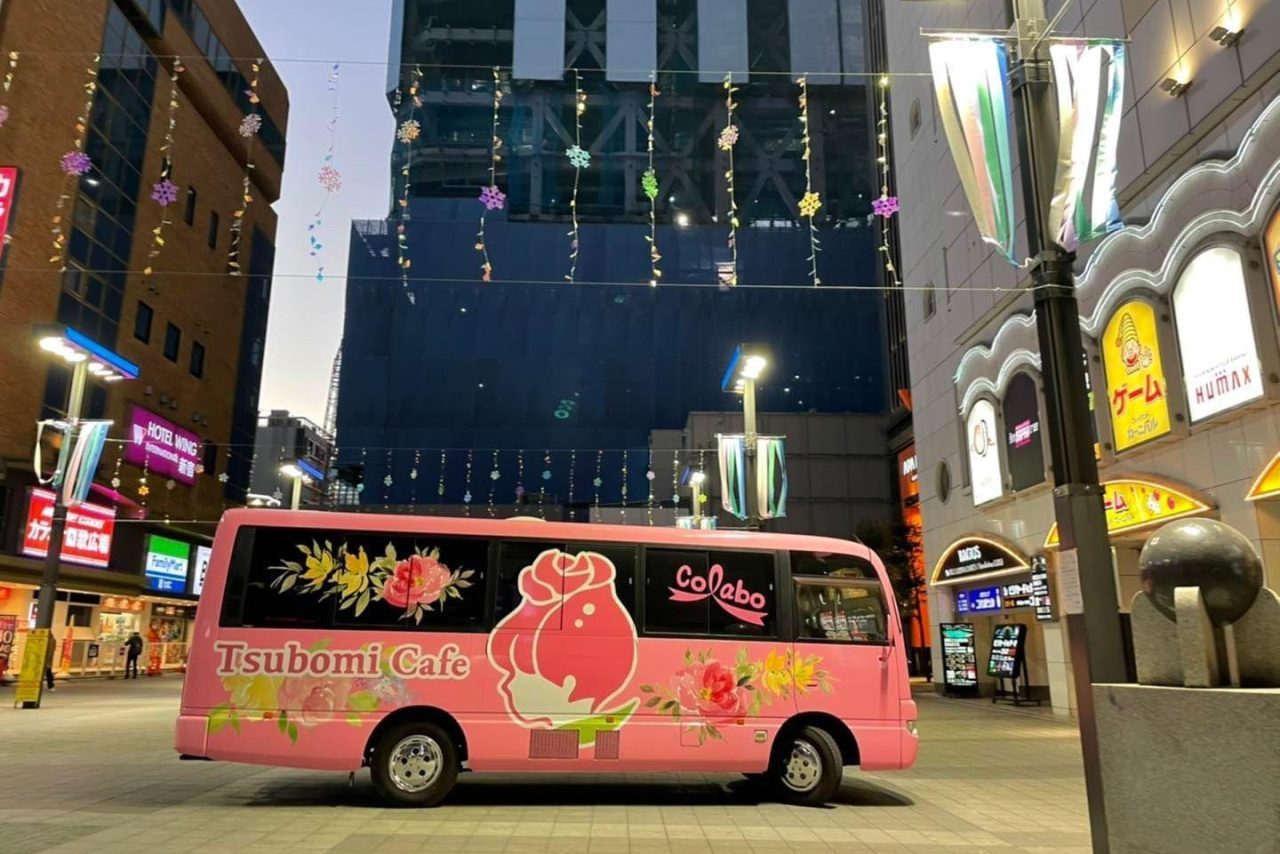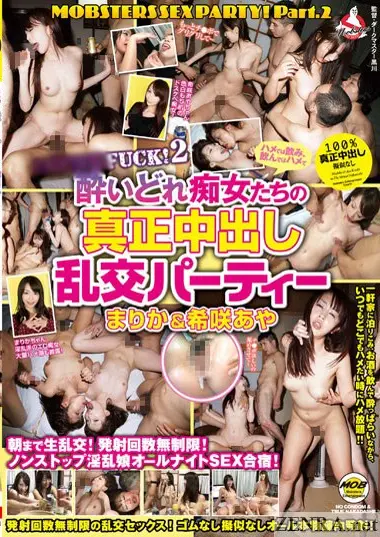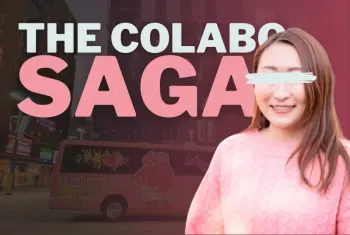The Colabo Saga - A Storm Is Brewing!

For those of you who are unfamiliar with Kazuko Ito, she has been one of the advocates to implement the new AV law. Due to the failure of her rationale that the AV industry, where ‘made to perform’ is prevalent, is unjustifiable did not deter her in the least. So, she began lobbying to shift the focus of the debate to the possibility that the presence of 18 to 19 year olds in adult films could cause long-term harm which ultimately was enough of reason to convince the lawmakers to pass this law. One could argue that her efforts resulted in the new AV law.
When the head of an AV production firm sued Kazuko for a slander in 2020, the lawyer stated, "Kazuko Ito has been supporting victims of AV performances and has kept the issue out of the eye." "Let's all rally behind her!" a freelance writer who is familiar with the feminist icon stated. Thus, at a moment when human rights activists who had worked hard pushing for the bill's approval, such as Kazuna Kaneshiri, who was present alongside Kazuko Ito at the Pappus event, would have been rejoicing, an unexpected ambush occurred. An unfamiliar NPO representative straight away opposed to the bill's substance, claiming that it legalized the filming of live sexual acts, and the hashtag "#opposethenewAVlaw" spread like a wildfire.
“A new law on AV, which is convenient for AV makers, is now about to be passed in the Diet. In order to stop the passage of the new law that legitimizes sexual exploitation, it is necessary that We, the citizens, must speak out against it. Wear something purple on the day of the gathering! Let's also speak out against the new AV law on SNS with I oppose the new AV law!" said Yumeno in a statement put forth on her Twitter on 14th of May in order to stop the enforcement of the law that in her view legitimized sex . A distant storm was brewing.
On March 18, a couple of days prior to the rally, the Colabo boss quoted a line from a Tokyo Shimbun article, "Although the bill has been revised in response to the comments of support groups for victims of sexual and sexual exploitation, the definition of pornography still includes the phrase "images of a person engaged in sexual intercourse" and the phrase "sexual intercourse" as a prerequisite for pornography. The definition of pornography, however, is still worded in such a way as to presuppose actual "sexual intercourse." citing in her tweet that her demands to eradicate sexual intercourse from AV were not met.
So what was behind the Colabo activist’s intent for what most of her compatriots would say, a sudden change of heart? For that let us rewind back to May 22nd, 2022. A swarm of activists congregated near Shinjuku East Exit Plaza, to protest against the new law that sides with AV production houses. They demanded immediate action against the new AV law that favours the AV industry. There were roughy 23 representatives from different anti-AV groups including Minori Kitahara (writer and vice president of Pappus) and Yukiko Tsunoda (lawyer), who called for the rally. Among those was Yumeno Nito an unfamiliar activist, who had a slightly different opinion than Kazuko Ito held the ground. The Colabo boss literally convinced her compatriots on Twitter to call for a rally to raise the spirits of her fellow activists by holding 'Emergency Action Against the New AV Law that Benefits the AV Industry'' in front of Shinjuku Station on May 22, 2022.
This move by Yumeno was part propaganda and partly motivated by the fact that her demands were not met since she had been participating from the early day of the law's enactment and had been quite vocal of the fact that sexual acts should be banned in these AV shoots subsequent to the enactment of the law but much to her dismay, things didn’t go as planned. While Kazuko Ito’s demands of safeguarding 18-19 year olds were met, Yumeno’s likely did not and that might have made the Colabo boss furious. The bill clearly worked in favor of safeguarding the actresses but made no amends to the inclusion of sexual acts in mainstream AV, so Yumeno was quick to overturn her stance and went all in to protest against the law.
A female dressed as a schoolgirl holds an advertisement for a girls bar in the Shinjuku district of Tokyo
Consider yourself being a student in Japan while the world is in the midst of a deadly pandemic. People are confined to their houses, schools are closed, and a general sense of hopelessness pervades in the air. You plan to flee in the midst of the commotion, hoping to get away from your house and begin a new life. You don’t have a designated destination, and perhaps have been walking for days. You are also likely afraid, worn out, and all by yourself. Then, somehow out of nowhere a pink bus emerges when you have least expected it to. Being the curious folk, you decide to step forward warily and are shocked to discover that the bus serves as a runaway rescue organization, giving wayward people refuge and food. First time in days, you must have felt safe after being greeted with open arms and being allowed inside.
The folks inside the vehicle were courteous and friendly enough, and they took the time out to hear your story and comprehend the predicament. They even offered a cozy and warm place to stay and food to eat, and subsequent to that you started to feel at home. Considerate enough and thankful for the individuals who had taken you in their shelter and looked after you in this whole time in the truck because it had served as a safe haven for the girl seeking refuge. A thought slowly dooms in you that you are no longer by yourself, this somehow makes you feel optimistic about the future. In a way, the pink bus served as a reminder to some runaway girl that there is still some good in the world, even in the midst of a devastating pandemic you were protected and cared for, and were confident that you would never forget the generosity of the folks who took good care of you.

The famed pink bus contrasting the late evening backdrop while being parked near Shibuya
In retrospect, in the midst of a deadly pandemic, a runaway schoolgirl stumbles across a pink truck in the bustling night market of Shinjuku, which works as a rescue operation for runaway females, facilitating shelter and food to the victims. The question still lingers, where can you go when you are a runaway girl who doesn’t perceive your home as a safe shelter? The answer lies with Tsubomi Café, a makeshift pink bus parked once a week in Shinjuku or Shibuya, brainchild of one of the protagonist of this column, Yumeno Nito who runs the non profit organization for runaway girls seeking refuge, Colabo. The organization has developed into a safe haven for girls who have somehow ended up on the streets due to difficult circumstances at home. A shelter where these runaway girls can not only get a piping hot meal but also medicine, new clothes, and a lot of warmth and comfort, which they severely need..
Unmistakable for its exterior splashed with illustrations of colorful flowers, a bright pink bus contrasts the usually dark backdrop of a December evening at a Shibuya park, its dazzling design standing out as the darkness of the night sets in. Three pink tents have been set up nearby. Once inside, visitors are met with everything from hot meals to manga, as well as a variety of everyday essentials — clothing, toothbrushes, menstrual products, and even condoms — that customers at this makeshift "bus cafe" are invited to take home for free. Visitors to this bus café are mostly girls who are often reluctant to return to their homes where poverty or violent situations exist. For them, traversing the streets at night is often unavoidable, even if it means receiving unwanted attention from lurkers.
Citing several sources, runaway seems to a big problem crippling the traditional fabric of the Japanese society in the modern era, so much to an extent that it has gained considerable light in the west. Foreign media houses like VICE made up a documentary on the gruesome subject yet a jarring reality, ‘schoolgirls for sale in Japan’. Approximately 18 minutes in length, in the documentary, the VICE reporters interview various experts from the field one of which being the main protagonist of this column, Yumeno Nito, the 30 year old women’s rights activist who seems to be the brains behind this whole operation, Colabo and it's subsidiary Tsubomi Cafe. In the interview, Yumeno claims to have set this up as an experimental project along with support from Tokyo’s Metropolitan government subsequent to being inspired by a similar cafe for runaway girls on her trip to South Korea’s capital Seoul.
Yumeno is all too familiar with these bleak circumstances because she has had first-hand experiences with them in the past. When she ran away from home as a student, the now social activist frequently laid on rooftops. Having interactions with these recruiters from JK Business (short for Joshu-Kousei business) was like a frequent part of her routine growing up. So, to not only address the dire situation in hand but also to tackle that, Yumeno setup the not-for-profit organization, Colabo. In her own words, the 30 year old activist states that her organisation strives to protect girls who are frequently victimized by recruiters of Joshu-Kousei business, several of them are likely to be found in Akihabara, and the services that these girls have to offer from making origami while flashing underwear to taking a stroll, participating in karaoke, or having a meal with the sponsor, who are typically middle aged men with to burn. Since 2011, Colabo, founded by Yumeno Nito and her team, has been a tremendous support for girls facing difficulties, protecting them from wandering in the streets Tokyo at night.
During pandemic, their work has been more important than ever. Colabo has been receiving more and more girls at the Tsubomi cafe since its inception. A safe refuge for females, volunteers strive to give those girls hope by showing them that they matter and that they have a place in a community they can trust. They can feel protected and cared for. Yumeno is disappointed that the government is ignoring these girls and that Colabo will not receive any subsidies to help them strengthen their support. “It’s not a problem that has been taken seriously by the authorities so far”, believes Yumeno Nito.
Many girls have found themselves in desperate and complicated situations. citing “If I lose my part-time job, I won’t survive,” explained a female student to Business Insider. "If I stay locked with my parents, my mental health will collapse”. Usually, “many of those girls work in order to stay away from home and to be able to pay for their own place", explained Yumeno Nito. "Most of them are running away from a violent male who wants to take advantage of them.”
Most of these coming of age girls share a common ground, that is they come from a highly dysfunctional home and Yumeno’s organization does the job at being of help to those seeking refuge. Now, what if I told you that these same folks who are indulged in this rescue operation were called out by a wealthy internet otaku who goes by the name Himasora Akane, defaming the organization for tax fraud or that an organization that claims itself to be non profit has been sued for duping the state funded . Would you consider it just, or would you be left in astonishment by what you just heard?. This multi part saga will keep you hooked to your seats and compel you to wonder whether an organisation that professes to be a welfare organisation has anything to do with welfare at all . See you in the following chapter!
For those of you who are unfamiliar with Kazuko Ito, she has been one of the advocates to implement the new AV law. Due to the failure of her rationale that the AV industry, where ‘made to perform’ is prevalent, is unjustifiable did not deter her in the least. So, she began lobbying to shift the focus of the debate to the possibility that the presence of 18 to 19 year olds in adult films could cause long-term harm which ultimately was enough of reason to convince the lawmakers to pass this law. One could argue that her efforts resulted in the new AV law.
When the head of an AV production firm sued Kazuko for a slander in 2020, the lawyer stated, "Kazuko Ito has been supporting victims of AV performances and has kept the issue out of the eye." "Let's all rally behind her!" a freelance writer who is familiar with the feminist icon stated. Thus, at a moment when human rights activists who had worked hard pushing for the bill's approval, such as Kazuna Kaneshiri, who was present alongside Kazuko Ito at the Pappus event, would have been rejoicing, an unexpected ambush occurred. An unfamiliar NPO representative straight away opposed to the bill's substance, claiming that it legalized the filming of live sexual acts, and the hashtag "#opposethenewAVlaw" spread like a wildfire.
“A new law on AV, which is convenient for AV makers, is now about to be passed in the Diet. In order to stop the passage of the new law that legitimizes sexual exploitation, it is necessary that We, the citizens, must speak out against it. Wear something purple on the day of the gathering! Let's also speak out against the new AV law on SNS with I oppose the new AV law!" said Yumeno in a statement put forth on her Twitter on 14th of May in order to stop the enforcement of the law that in her view legitimized sex . A distant storm was brewing.
On March 18, a couple of days prior to the rally, the Colabo boss quoted a line from a Tok...
Want to read more?
Create a free account to access more blog posts each month!
More Info: The Future of the ZENRA JAV Blog
Unlock unlimited blog access!
Subscribe or purchase videos to get unlimited access to all blog posts and support legal JAV.
For those unable to pay, approved thoughtful blog comments will reset your monthly limit.
Video Purchase Coupon Code:
More Info: The Future of the ZENRA JAV Blog
Notify Me of New Blog Posts
Get notified when we publish new blog posts:
Comments
Continue Reading Join the Discussion Welcome to ZENRA!
Register for free to get more blog posts each month, or login to continue reading.
Login or register to join the conversation and share your thoughts.
By trapstar @ September 23rd, 2023
By WoodOfTheRisingSun @ July 3rd, 2020
By WoodOfTheRisingSun @ June 23rd, 2020































